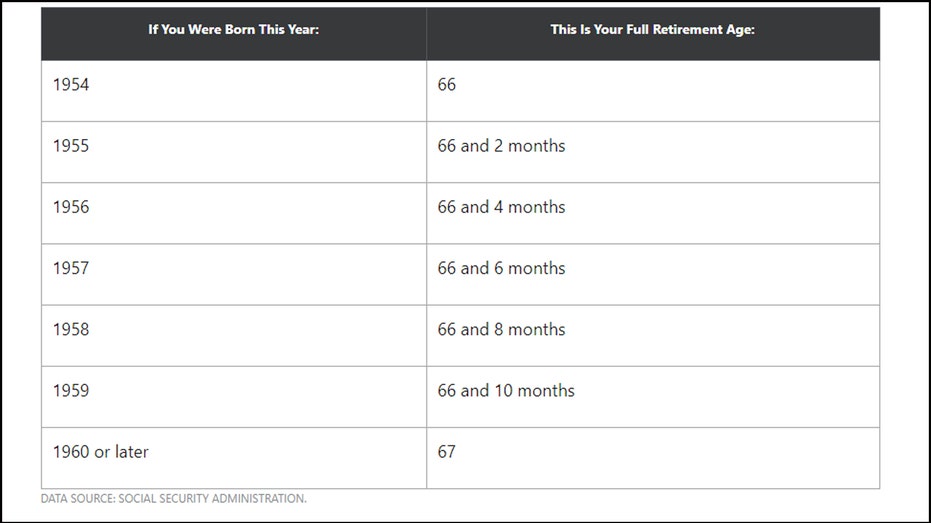
Though unemployment has been rampant during the COVID-19 crisis, some retirees may start thinking about re-entering the workforce at some point this year. Many people's retirement savings took a hit back in March when the stock market tanked, and while it has largely recovered, we don't know what the rest of the year has in store. That means a lot of 401(k)s or IRAs could take an additional beating in the course of 2020, prompting some seniors to return to work in an effort to leave their savings alone and let their portfolios recoup lost value.

Job interview concept, Senior manager reading a resume during a job interview employee young man meeting Applicant and recruitment
If you're collecting Social Security, you may be wondering if returning to work is even allowed, and how it might impact your benefits. Here's what you need to know if you're thinking you may need to get a job at some point this year.
Your age matters
First, let's get one thing out of the way: You are allowed to work and collect Social Security at the same time. But whether that impacts your benefits will depend on your age.
Once you reach full retirement age, you can work and earn as much as you'd like without having it make a difference as far as your benefits are concerned. Here's what full retirement age looks like, depending on the year you were born:

Let's say you claimed Social Security ahead of full retirement age and you're thinking of returning to work. If that's the case, you may have a portion of your benefits withheld if your income exceeds a certain threshold known as the earnings test limit.
The earnings test limit changes from year to year. In 2020, you can earn up to $18,240 without having it impact your benefits. From there, you'll have $1 in Social Security withheld for every $2 you earn.
However, if you'll be reaching full retirement age in 2020, that limit increases to $48,600, and only once you surpass that point will you start to have benefits withheld. When that happens, you'll temporarily lose $1 in Social Security for every $3 you earn.
Exceeding the earnings test limit won't mean losing out on benefits permanently. Rather, the amount that's withheld will be added to your benefits once you reach full retirement age so that you'll get more from Social Security down the line. But if your goal in going back to work is to earn enough money to completely leave your savings alone, you'll need to crunch the numbers to make sure that doing so allows you to achieve that goal.
Another approach? Get a part-time job so that you'll be able to stay within the limit that applies to you.
At a time when COVID-19 remains a very large threat, many seniors may opt to stay home. But if money becomes an issue, returning to work might seem like a good solution. Just make sure you understand the way that could impact your Social Security income before finalizing that decision.
As August approaches, so does another rent due date for millions of renters in Southern California. After months of unemployment, many have fallen far behind on rent, but for now, evictions in California are on hold.
Cities and counties have enacted temporary moratoriums, and the state's court system has basically halted all eviction proceedings until 90 days after the emergency is over.
But it's not a permanent answer. The reality is many thousands of households won't be able to keep up when the rent, eventually, comes due.
There's the fear of a so-called "eviction tsunami," which some say the government is not meaningfully attempting to prevent.
TICKING TIMEBOMB
In Los Angeles County more than 31% of the overall labor force has applied for state unemployment insurance since February, according to the California Policy Lab.
"It's like a ticking timebomb," said Ananya Roy, a UCLA professor who directs the Luskin Institute on Inequality and Democracy. She worries we're on a path to mass housing insecurity on a scale not seen since the Great Depression.
"The point of the Great Depression was a generalized condition of precarity and suffering. Even those who were well-to-do were suddenly facing eviction, suddenly living in a Hooverville," said Roy.
Recent research produced by the Institute estimates that as many as 365,000 households could face eviction, based on how many people applied for unemployment insurance and how many undocumented laborers not eligible for UI live in L.A. County.
That doesn't necessarily mean they will become homeless. Many people, when they lose housing, double up with another family or find some other option. But the research still suggests that 120,000 households in Los Angeles County could be on the streets — including up to 184,000 children.
(Another report, published by the UCLA Luskin Institute in late July, resignedly provides policy guidance for dealing with a huge surge in urban shantytowns and encampments should predictions about impending homelessness come true.)
RENT CANCELLATION IS NOW A POLITICAL DEMAND
The solution being put forth by tenants and their advocates is this: just cancel the rent, and make landlords apply for government assistance instead of tenants.
Cries of "cancel the rent" can be heard everywhere, from social media to public comment at government meetings, to regular protests targeting elected officials at their personal homes. Some of those elected officials, like former L.A. City Council President Herb Wesson, have signaled they agree.
Roy, of UCLA, says bluntly that, in the age of coronavirus, canceling the rent has become an explicit political demand on elected officials.
"The question is, whose demands and needs are met through our political system. And while tenants have been gaining power, we have not seen significant tenants' protection policies," said Roy.
"We have very powerful property interests that constantly undermine the political demands of tenants."
A vote to ban all evictions in the city of Los Angeles during the pandemic failed by one vote earlier this year.
At the same time, as Roy notes, tenants are better organized and increasingly more powerful now than compared to years past, and have pushed politicians to acknowledge the scale of the problem in public meetings.
LOST CONTROL, LOST INCOME
For property owners, the perspective is very different.
Dan Yukelson, the executive director of the Apartment Association of Greater Los Angeles, disagrees with the idea that property owners wield disproportionate power in politics. He says the rules put in place around eviction during the pandemic are biased towards tenants.
"We've basically lost control of our properties," said Yukelson. "Right now we have no control. We can't say who we want to live in our properties. And we can't do anything about collecting the income that's owed to us under our contracts."
Long term, Yukelson worries about small property owners being put out of business and selling their properties to larger corporate managers. Many, he says, don't have a financial safety net that allows them to accommodate months of non-payment from their tenants. He says that even when evictions do a resume, it's not an immediate option for property owners.
"If owners do want to evict, there's going to be a major backlog in the courts and people are going to be in place for at least another 12 months [after evictions resume] without paying rent. That's going to bankrupt a lot of these apartment owners, and I'm really concerned you're going to see a huge wave of foreclosures."
Yukelson added that he attempted to refinance one of his rental properties recently, and was told by his bank that they wouldn't consider his rental income as an asset.
"They don't trust it anymore, because the government can literally come in and alter contracts, and I may not be able to collect rent for my property. So I wasn't able to refinance my property, even though I have great credit," said Yukelson.
WHO WOULD PAY?
Practically, 'canceling rent' or offering tenants forgiveness for missed rent would ultimately require public assistance for property owners who lose rental income. That leaves the question of how such a program would be funded, and how it would work.
The clearest option would be for the federal government to step in. Congressional Rep. Ilhan Omar has introduced a bill that would cancel rent for tenants (and mortgage payments for many property owners) for the duration of the pandemic, and create a "Landlord Relief Fund" for affected owners to seek assistance from the federal government.
Unlike state and local governments, which have a finite amount of funds, the federal government is more flexible. However, it's unlikely that Omar's bill will become law.
Other proposals suggest locally managed reimbursements for property owners, and even providing tax credits for larger owners.
Aside from rent forgiveness, there are several proposals floating around the statehouse right now intended to shore up the patchwork of temporary eviction moratoriums put in place by local governments, mayors, and even the governor.
Among them are AB 1436, which proposes barring landlords from evicting tenants due to any unpaid rent during the State of Emergency, and for at least 12 months after the emergency is over. (Currently, you must show you have been impacted by the coronavirus).
AB 1436 is currently pending in the state Senate Judiciary Committee, set to meet next in early August.
LOCAL RENTAL ASSISTANCE
In July, the City of Los Angeles launched a program to offer some households, at least, help with the rent.
Its $103 million rental assistance program, paid for with federal COVID-19 relief funds, aims to provide about 50,000 renting households up to $2,000 in rental assistance.
That money will be paid directly to property owners, so long as they agree to not evict a tenant until at least six months after the emergency is over.
"I think it's a step in the right direction, and it's what our association has been pushing for for months now to provide some kind of rental relief so we can keep property owners afloat," said Yukelson, the head of the Apartment Association of Greater Los Angeles.
Yukelson referred to the provision that landlords not evict a tenant for at least six months after receiving payment as one of the program's "hooks in the cheese."
Over 200,000 households applied to the program, according to the Los Angeles Housing and Community Investment Department. Households will be selected by lottery for the $2,000 in public assistance.
FEDERAL AND STATE SUBSIDIES
Ultimately, Yukelson wants to see something similar to the city's rental assistance program — direct payments to property owners — at the state or federal level.
"Their budget, due to the pandemic, [is] very challenged. But there needs to be some federal money and subsidies that come in. And you know, quite frankly, the state does have more emergency funds left. They need to dig deep, and they need to help people stay housed and they need to keep rental property owners afloat," said Yukelson.
Roy, the UCLA professor, says that any attempt to keep tenants housed will ultimately save money in the long run. Homelessness, distinct from the staggering human toll, ultimately proves enormously expensive to manage for the government.
"If you think about what it would take [for] a program that cancels rents during the time of this pandemic, and recognizes that this requires public resources, that would be so much cheaper than allowing basically thousands and thousands of people to get evicted, become homeless, and then a few years down the line, come up with really expensive housing solutions that don't really work to get them back into housing."
